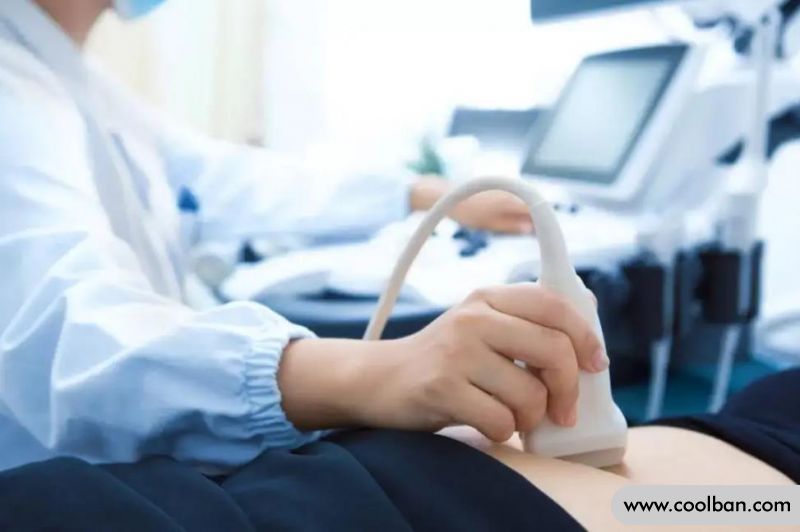Key items and precautions for early pregnancy checkup
1st Trimester Pregnancy Examination in the early stages of pregnancy. Due to the high risk during pregnancy, it is extremely important for the pregnant mother and fetus to check and treat through the first-trimester obstetric examination to prevent the occurrence of various diseases. Let's take a look at the inspection items in the first trimester and the precautions for the first trimester.

What should be paid attention to in the first trimester obstetric examination
After a pregnant woman is diagnosed with pregnancy, she should go to the relevant obstetrics and gynecology institution to establish a "Maternal Health Manual" within 12 weeks after menopause, and conduct the first prenatal examination. 16-28 weeks of pregnancy, check every 4 weeks, 28-36 weeks of pregnancy, check every two weeks; after 36 weeks of pregnancy, check once a week, a total of 13 times. Older pregnant women should increase the number of examinations.
The time of the obstetric examination in the first trimester is 12 weeks of pregnancy. Pregnant women should pay attention to the following matters during the obstetric examination:
First trimester obstetric examination Note 1: The first obstetric examination is when the expectant mother shares more information with the doctor. Bring your ID and the doctor will make a card for you. This is your pregnancy check file. From now on, the doctor will record all your relevant obstetric examinations on it. For the first check-up, you will also need to bring your father-to-be with you, and the doctor will also need to know the health of you and your immediate family and family members.
First trimester obstetric examination Note 2: Liver function test. Because of the need for blood tests to check liver function, fasting is required before the first pregnancy test.
First trimester obstetric examination Note 3: Gong Gao. Before measuring the palace height, empty the urine so as not to affect the accuracy of the measurement.
First trimester obstetric examination Note 4: Blood pressure. Only measure blood pressure after sitting for half an hour, in order to objectively reflect the true situation of blood pressure.

Early pregnancy inspection Key inspection items
During the first trimester check-up, pregnant women need to establish a pregnancy health care manual, determine the gestational age, estimate the expected date of delivery, and assess the risk factors during pregnancy. Obstetric examination items that need to be done include blood pressure, body mass index, fetal heart rate, blood routine, urine routine, blood type (ABO and Rh), fasting blood glucose, liver and kidney function, hepatitis B virus surface antigen, Treponema pallidum, HIV screening test , ECG.
People who have not done pre-marital and pregnancy tests before should also increase the screening of thalassemia, and those who keep pets at home should increase the inspection of parasites. Experts remind: the first obstetric inspection items are relatively the most, which is also to comprehensively check the health status of expectant mothers. Take your father-to-be for a check-up and find out about your health and that of his immediate and family members.
Interpretation of key items of early pregnancy and obstetric examination
In the first trimester Obstetric inspection item 1: Fetal neck translucency detection - fetal malformation screening (NT). Taken at 11-14 weeks of pregnancy, it refers to the accumulation of fluid in the subcutaneous tissue at the back of the fetus's neck. Studies over the past 10 years have found that increased NT thickness increases the likelihood of fetal abnormalities. When the measured value is less than 2.5mm, it is judged as normal.
Early pregnancy Item 2 of obstetric inspection: Rubella virus antibody. Rubella not only infects pregnant women, but can also cause vertical infection through the placenta and genitalia, leading to miscarriage, intrauterine growth disorders, and congenital malformations such as congenital cataracts, deafness, and heart disease. The detection of rubella virus-specific antibody IgM in the serum of pregnant women and the determination of rubella virus IgM antibody in the serum of pregnant women can help predict the pregnancy outcome and reduce the incidence of children with congenital rubella syndrome.
Early pregnancy Obstetric inspection item 3: Human immunodeficiency virus. AIDS, also known as acquired immunodeficiency syndrome, is a sexually transmitted disease caused by the human immunodeficiency virus (HIV). At present, the number of AIDS virus (HIV) carriers or AIDS (AIDS) patients in China is increasing, and the proportion of female infected persons is also increasing. Because 90% of HIV infections in infants and children are caused by mother-to-child transmission, HIV screening is very important.

Therefore, in order to prevent the occurrence of these diseases in time and ensure the healthy development of the baby, pregnant mothers must carry out early pregnancy inspections in time!
